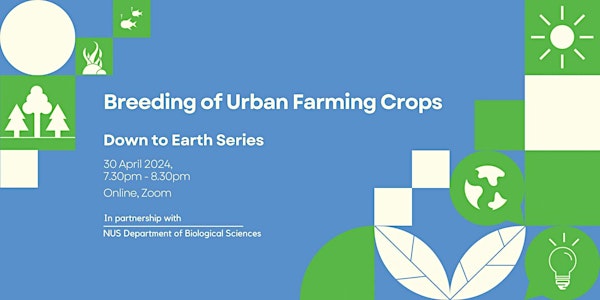About the Programme:
The last century of mankind has seen remarkable progress in the science and technology innovation for agri-food industry. With the global human population growth expected to reach 9.6 billion by 2050, we will need to produce nearly 70% more food to feed an additional 2 billion mouths. Due to increasing uncertainties such as climate change, reduction in farming areas, and political instability, our food growing capability is being compromised so that we have to transform our way of producing food while maintaining overall sustainability of food and agricultural systems for the future.
Since the beginning of farming practices, humans have been selecting for desirable crop traits, such as higher yield, faster growth, and better disease resistance. With new biotechnological tools such as CRISPR-Cas9 genome-editing method, breeders can now modify specific genes known in affecting certain traits to generate elite crop strains or varieties. Plants generated from genome-editing technology are genetically indistinguishable from those produced by traditional selective breeding. In addition, the time needed to obtain desired traits by this new technology is much shorter than that required by traditional selective breeding.
In this talk, learn how advanced breeding approaches, such as genome-editing approach, is being used for breeding of urban farming crops to achieve our “30 by 30” goal to produce 30 percent of Singapore’s nutritional needs locally by 2030.
This talk is part of a series co-curated with the NUS Department of Biological Sciences.
